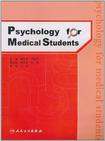医学心理学
2010-7
王伟、姚树桥、 方建群 人民卫生出版社 (2010-07出版)
王伟 等 著
418
王伟 注解
医学心理学是研究心理现象与疾病和健康相互关系的一门学科,是正在发展中的交叉学科,已成为现代医学教育中非常重要的课程。随着当前我国高等医学教育国际化进程的不断加快,越来越多的医学留学生来我国高等医学院校学习,这些都对医学教育中运用英语教学提出了更高的要求;同时,教育部对本科教育的双语教学要求也越来越高。但是,目前专门针对医学留学生以及本科教育双语教学的医学心理学教材还非常缺乏。为了加快与国际水平接轨,并满足医学院校对双语教学的要求,我们编写了这本英文版的《医学心理学》,以满足各医学院校教学的需要。根据普通高等教育“十一五”国家级规划教材及卫生部“十一五”规划教材的要求,结合我国医学教育的特点及国际著名心理学教材的特点,对教材的结构和内容进行了精心的组织,并邀请了国内教学经验丰富、有英语国家学习经历的医学心理学专家编写了这本教材,同时邀请了外国专家进行审校,以保证本教材的质量。全书内容可分为三个部分。第一部分绪论,主要介绍了心理学的发展历史、心理学的分支学科、生物一心理-社会医学模式以及心理学研究方法;第二部分主要介绍了普通心理学和发展心理学的基本知识,包括感觉和知觉、记忆、学习、动机和情感、个性以及意识、睡眠和梦;第三部分主要介绍了和临床有关的应用心理学知识,包括心理测量、健康心理学、异常心理、心身疾病、心理治疗、心理咨询以及医患关系等。本教材既保留了心理学的基本知识框架,又增加了许多当今心理学进展的知识,并在内容上与国际上的临床心理学和心身医学接轨,适用于医学留学生、研究生及七年制医学教育的医学心理学英语教学;同时也适合本科教育的医学心理学双语教学。参加本教材编写的老师们为本教材的编写付出了很大努力,反复推敲,多次精心修改,并对稿件进行了互审、互校。虽然如此,由于缺乏编写英文版专业教材的经验,难免会出现各种缺陷或错误,我们诚挚地希望使用本教材的老师和同学们提出宝贵意见。
《医学心理学(英文版)》根据普通高等教育“十一五”国家级规划教材及卫生部“十一五”规划教材的要求,结合我国医学教育的特点及国际著名心理学教材的特点,对教材的结构和内容进行了精心的组织,并邀请了国内教学经验丰富、有英语国家学习经历的医学心理学专家编写了《医学心理学(英文版)》,同时邀请了外国专家进行审校,以保证本教材的质量。
Chapter I Introduction to Psychology1.Introduction:1.1 What is Psychology?1.2 Professions of Psychology1 3 The Goals of Psychology2.The Historical Origins of Psychology2.1 Historical Development of Psychology2.2 Timeline of Important Events in the History of Psychology3.Contemporary Psychological Perspectives3.1 Biological Perspective3.2 Psychoanalytic Perspective3.3 Behavioral Perspective3.4 Humanistic Perspective3.5 Cognitive Perspective4.The Major Subfields of Psychology4.1 Experimental Psychology4.2 Applied Psychology5.The BiO psychosocial Model6.Research Methods in Psychology6.1 The Research Process6.2 Research Biases6.3 Common Methods for Reductionin Bias64 EthicaT Considerationsin ResearchChapter 2 Major Topics in General PsychologySection 1 Sensation and Perception1.Introduction1.1 Why Do We Study Sensation and Perception?1 2 Difference between Sensation and Perception2.Sensation2.1 The Assessment of Sense2.2 Pans and Functions of the Basic Senses3.Perception3.1 Selectivity of Perception3.2 Organization of Perception3.3 Perceptual Constancy3.4 Space and Depth Perception3.5 Perceptual Illusions3.6 Theories of Perceptual DevelopmentSection 2 Memory1.How We Study Memory?2.Memory Processes2.1 Encoding2.2 Storage2.3 Retrieval3.Stages of Memory3.1 Sensory Memory3.2 Short.Term Memory(STM)3.3 Long-Term Memory(LTM)4.Types of Memory4.1 Implicit Memory4 2 Explicit Memory4.3 Differences between Explicit and Implicit Memory5.Forgetting5.1 Ebbinghaus Forgetting Curve5.2 Causes of Forgetting5.3 AmnesiaSection 3 Learning1.Introduction to Learning1.1 What is Learning?1.2 Types of Learning2.Classical Conditioning2.1 Pavlov’s Experiments2.2 Principles of Classical Conditioning2.3 Application of Classical Conditioning3.Operant Conditioning3.1 Whatisthe Operant Conditioning?3.2 Law Of Efrect3.3 Principlesin Operant Conditioning3.4 Schedules ofRein forcement3.5 Comparison of Classical and Operant Conditioning3.6 Applications of Operant Conditioning4.Observational Learning4.1 Bandura’S ExperimentJ4.2 Stepsto Successful Modeling4.3 Possible Mechanism of Observational LearningSection 4 Motivation1.Intrinsic and Extrinsic Motivations2.Theoretical Perspectives on Motivation2.1 Instinct Theory2.2 Drive Reduction Theory2.3 Optimal Arousal Theory2.4 Incentive Theory2.5 Cognitive Theory2.6 Maslow's Hierarchy of Needs3.Applying the Different Theories to Motivation4.Dealing with Multiple MotivesSection 5 Emotion1.PhysiologicalAspect of Emotion1.1 Physiological Changes of Emotion1.2 The Neuropsychology of Emotion2.Subjective Experience2.1 Types of Emotion2.2 Functions of Emotion3.Emotional Expression3.1 Facial Expressions3.2 Culture and Emotion Display Rules3.3 Gender and Emotional Expression4.Theoretical Perspectives on Emotion4.1 James-Lange Theory4.2 Cannon-BardTheory4.3 Cognitive Perspectives on Emotion4.4 The Opponent-Process TheorySection 6 Personality1.Introduction to personality2.Approaches to Personality2.1 The Psychqanalytic Approach2.2 The Trait Approach2.3 The Behavioral and Social Learning Approach2.4 The Humanistic Approach2.5 The CognitiveApproach2.6 TheBiologicalApproach3.PersonalityAssessment3.1 Observational Methods3.2 Personality InventoriesSection 7 Consciousness.Sleeping and Dreaming1.Consciousness1.1 Whatis Consciousness?1.2 Functions of Consciousness1.3 States of C0nsciousness1.4 Levels of Consciousness2.Sleeping and Dreaming2.1 Functions of Sleep2.2 Sleep Patterns2.3 Sleep Disorders2.4 Dreaming3.Altering Consciousness3.1 Hypnosis3.2 Mediration3.3 Altered States with DrugsChapter 3 Psychological Development1.Introduction to Developmental Psychology2.Theories of Developmental Psychology3.Cognitive,Emotional,and Social Development3.1 Infancy and Childhood3.2 Adolescence3.3 AdulthoodChapter 4 Psychological Test1.IntroductiontoPsychologicalAssessment1.1 Types of Tests1.2 Uses of Tests1.3 A Brief History:Testis the Need of Society2.Requirements for a Good Test2.1 Item Selection2.2 Standardization2.3 Reliability2.4 validity3.Tests of IntellectualA bility3.1 Binet’s Method3.2 Stanford BinetIntelligence Scale3.3 Wechsler Intelligence Scales……Chapter 5 Health PsychologyChapter 6 Psychological DisordersChapter 7 Psychosomatic DisordersChapter 8 PsychotherapyChapter 9 Psychological CounselingChapter 10 Doctor-Patient Relationship
Some psychologists suggested that understanding the function of the mind is more important than analyzingthe structures of the mind or mental processes. In 1890, the American psychologist William James (1842-1910)published his classic textbook, The Principles of Psychology. His idea is considered as the basis of a newschool of psychology called functionalism. During his time, the famous British biologist Charles Darwinproposed that evolution could be explained through natural selection. A biological function that fixes to theenvironment will be maintain, in other words, the development of the functions of species depend on theenvironment. James quite agreed on the Darwin's theory, and believed that analyzing the elements of the mindwas less important than understanding the fluid mental functions. William James was interested in the questionsuch as, "what are the functions or purposes of various behaviors and mental processes?"
《医学心理学(英文版)》由人民卫生出版社出版。

朋友说不错 有讲解 内容详细